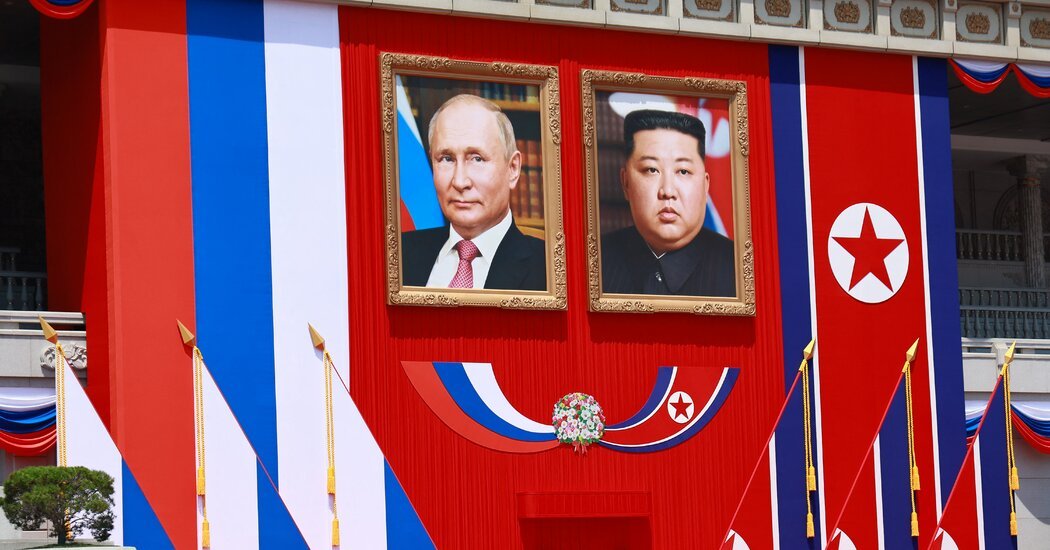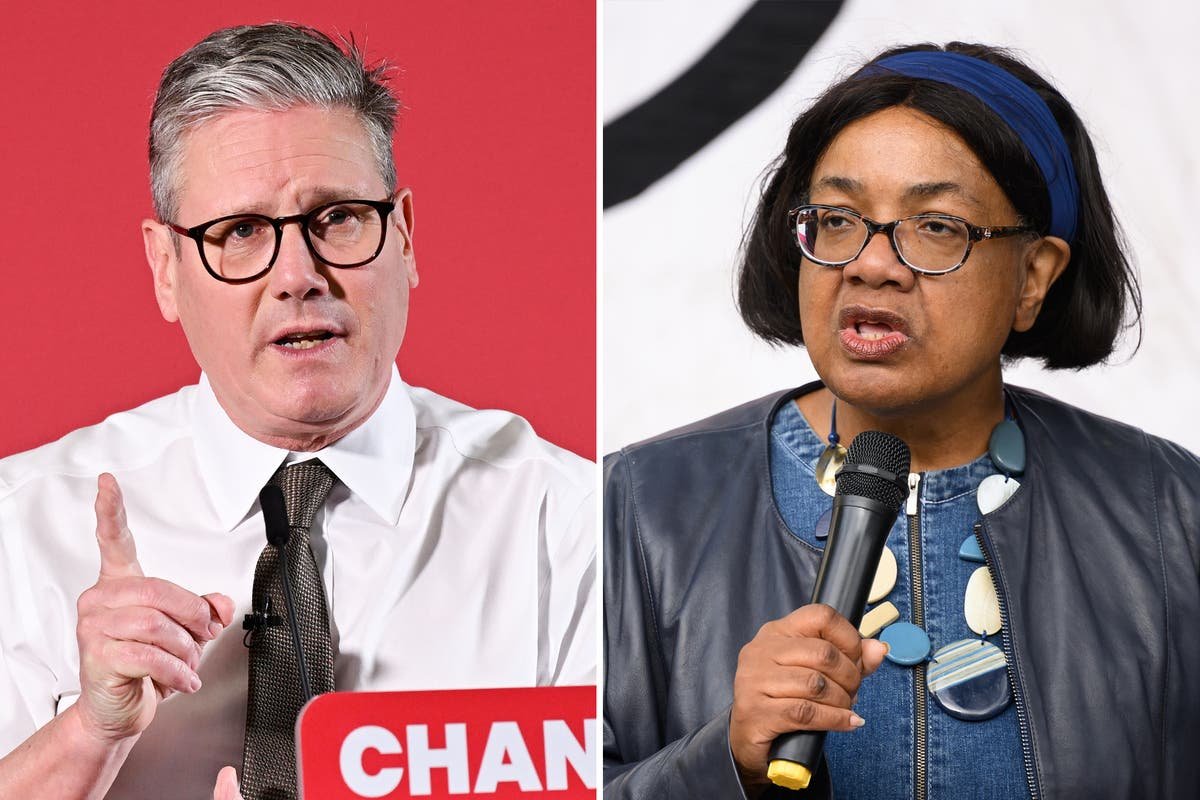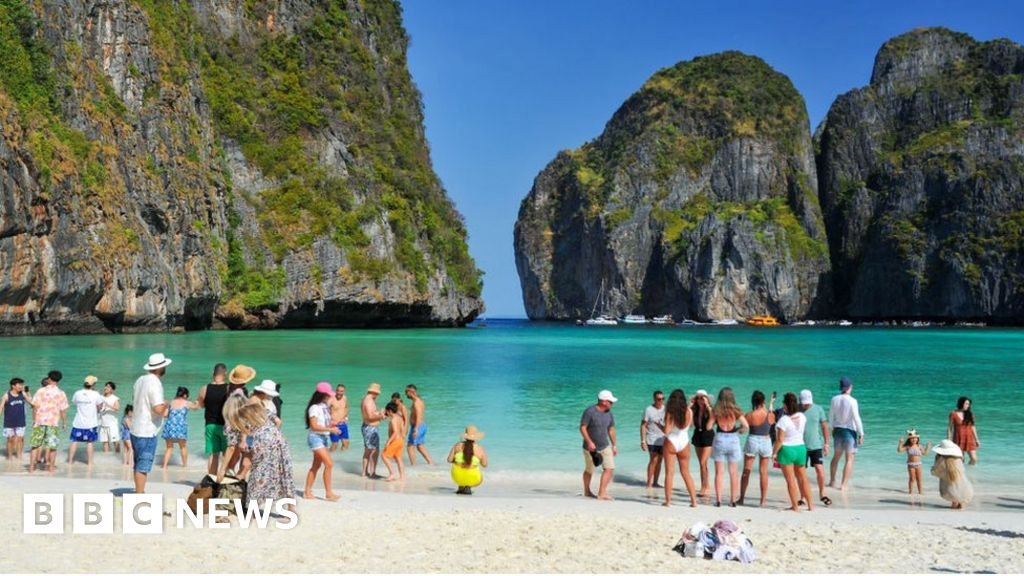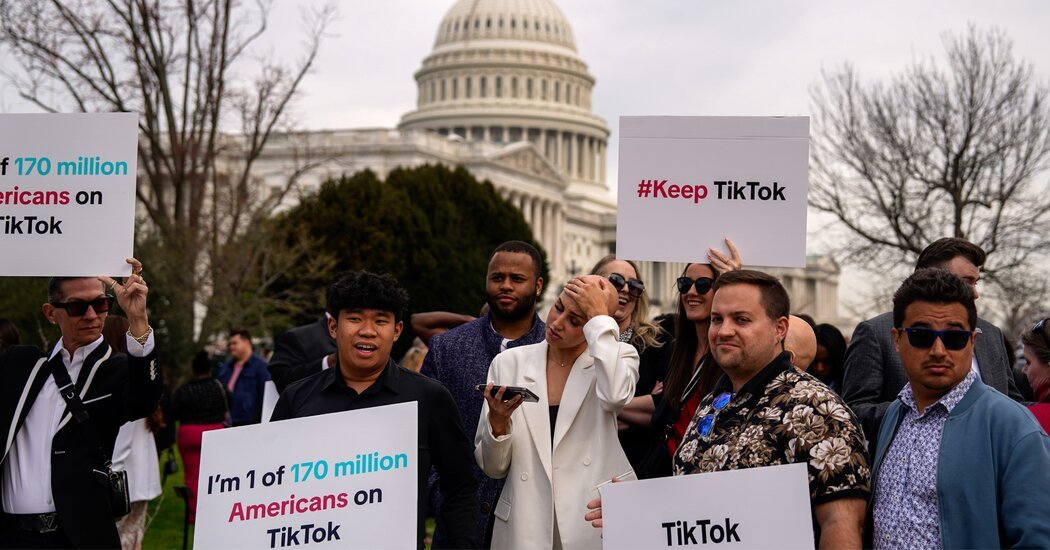President Vladimir V. Putin of Russia directly warned the United States and its allies that he is willing to arm North Korea if they continue to supply Kyiv with sophisticated weapons that have struck Russian territory, raising the stakes for the Western powers backing Ukraine.
Mr. Putin made the threat in comments to reporters traveling with him late Thursday in Vietnam before he flew home to Russia after a trip there and to North Korea. He had made a similar, though significantly less overt, threat a day earlier in Pyongyang, where he revived a Cold War-era mutual defense pact with North Korea’s leader, Kim Jong-un. The pact requires each nation to provide military assistance to the other “with all means at its disposal” in the event of an attack.
Mr. Putin cast his threat to arm Pyongyang, in violation of United Nations sanctions, as a response to decisions by the United States and its allies in recent months to allow Ukraine to make certain strikes on Russian territory with their weapons. The White House made that decision last month, but maintained its prohibition on longer-range attacks deeper in the country with U.S. arms.
“Those who supply these weapons believe that they are not at war with us,” Mr. Putin said. “Well, as I said, including in Pyongyang, then we reserve the right to supply weapons to other regions of the world.”

“And where will they go next?” Mr. Putin asked of the weapons, suggesting that North Korea could then sell the Russian arms to other rogue actors hostile to the United States and its allies around the world.
Though Mr. Putin didn’t say what weapons he would give to North Korea, Mr. Kim is seeking to advance his nuclear warheads, missiles, submarines and satellites — all areas where Russia possesses some of the most sophisticated and dangerous technology in the world.
The Russian leader’s visit to Pyongyang underscored how the war in Ukraine has become the guiding principle of his foreign policy, overtaking other priorities that the Kremlin had pursued for years. Washington and Seoul say North Korea has sent dozens of ballistic missiles and over 11,000 shipping containers of munitions to Russia for use in its war against Ukraine, helping Mr. Putin overcome ammunition shortages. Both Russia and North Korea have denied any exchange of arms, which would violate the U.N. sanctions.
For years, Russia participated in efforts at the United Nations to constrain Mr. Kim’s nuclear weapons and missile program, approving resolution after resolution at the Security Council intended to limit his regime’s access to arms, technology and resources. The restrictions were brought in as North Korea conducted six nuclear tests and developed an intercontinental ballistic missile program.
But now Mr. Putin has dramatically changed course, advocating the end of the very sanctions he approved, driven by his desire to raise the cost to the United States of supporting Ukraine and Russia’s need for North Korea’s vast stores of conventional ammunition and weaponry to use on the battlefield.
“Here the Westerners supply weapons to Ukraine and say that ‘we don’t control anything here at all, and it doesn’t matter how they are used,’” Mr. Putin said. “We can also say that we delivered something to someone, and then we have no control over anything. Let them think about that.”
His revival of the Cold War-era mutual defense pledge with North Korea, and his suggestion that he may arm Mr. Kim’s regime, stoked fears in South Korea and Japan, which house tens of thousands of American troops on U.S. bases.
South Korean officials said they would consider providing lethal assistance to Ukraine in response. Mr. Putin warned them against such a decision in his remarks Thursday before leaving the region.
He said the mutual defense pact shouldn’t worry South Korea, because it calls for Russia’s military intervention only in the event of aggression against North Korea, and as far as he knew, he said, Seoul had no intention of carrying out such an attack.
The Russian leader, who has made criticizing the “strangulation of sanctions” a centerpiece of his international messaging, compared the restrictions on North Korea to the siege of Leningrad by the Nazis during World War II, which caused the death of his older brother, who was then a year old.
Mr. Putin reiterated in his comments Thursday that those sanctions should be re-evaluated, in particular questioning those related to labor migration, saying that North Korean families were unable to earn money and feed their children.
“Does this remind you of anything?” Mr. Putin said, referring to World War II. “And is this humane?”
Mr. Putin’s trip to Pyongyang came days after he issued new demands to end the war in Ukraine. He said he would agree to a cease-fire and enter talks if Kyiv withdrew troops from the four eastern Ukrainian regions Moscow has claimed as its own and dropped its aspirations to join NATO. Russia hasn’t held the full territory of those regions at any point during the war.
Ukraine and its Western allies immediately rejected the proposal as a demand of capitulation and additional Ukrainian land, rather than an honest overture for negotiations.
In the days since, the Russian leader and his top lieutenants have urged the West to take the offer seriously and tried to amp up the pressure, warning of worse terms to come and more catastrophic conditions on the battlefield.
The Russian leader also claimed Moscow was considering changing its nuclear doctrine in response to new devices being developed by the West that lower the threshold for nuclear use. Russia possesses the world’s biggest arsenal of so-called tactical nuclear weapons, which have lower yields and can be used in more limited battlefield scenarios.
Mr. Putin ordered his troops to practice using such weapons earlier this year in response to Britain’s announcement that Ukraine could use its weapons to strike Russia and to suggestions by President Emmanuel Macron of France that Western nations might put troops on the ground in Ukraine.
The Kremlin leader has regularly warned his Western foes against pursuing Moscow’s “strategic defeat” through a loss in the war against Ukraine — a message he reiterated on Thursday.
“This means the end of the 1,000-year history of the Russian state,” he said. “I think this is clear to everyone. And then the question arises: Why should we be afraid? Isn’t it better to go all the way?”










